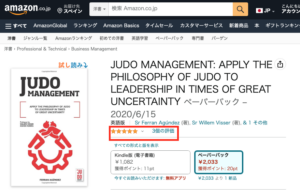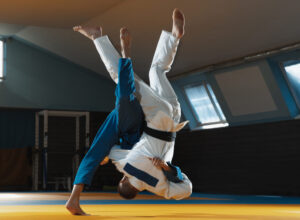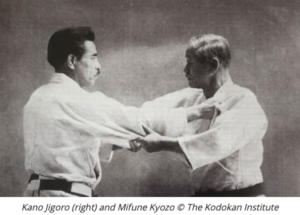“Sport and professionalism” is the keynote speech of Willem Visser, International Lecturer 8th Dan Judo IJF, at the International Congress, Sport Science and Research Institute Tehran; (9/11 – 12/11 2020).
Sport and professionalism means, that sport federations have to be professional as well.
The structure in a professional sport federation has to be a professional structure and is quite similar to a business company. (Because of the fact that the president and the board of executives of the Dutch Judo Federation were all businessmen, in the time that I was head coach of that federation, 1988-1996, was a guarantee for results; both in the grow of the federation and in international contest results!)
In a professional sport federation there are all kinds of management, like
➢ Financial management,
➢ Economical management,
➢ Commercial management,
➢ Public relations and communication,
➢ Human Resource management,
➢ Knowledge management and science,
➢ Performance management.
All those aspects of management need leadership, so in sport federations there is a financial director, a technical director and a general director.
In sport federations with more than 100.000 members the staff of directors is even bigger; they also have a commercial director and human resource manager.
In some very rich federations they have their own scientific division. In some countries the scientific division is lodged within the National Olympic Committee and all national sport federations can use the expertise of the scientific research.
In a lot of countries the values and the benefit of physical education and sport is recognized. Because of the values and benefit of physical education and sport governments are supporting executing and development of physical education and sport.
But with the existing of professional sport the policy of, especially, financial support is changed, because professionalism means also self-supporting and empowerment (self-management). So the government has to execute good government by sharing the taxes in the most honest way.
Good governance by the government is important!
A good example of good governance are the Olympic Games in London, 2012.
About 15 billion dollar were financed by the national government. In a very intelligent way the management of those huge London organization could manage the budget in a way that after the Olympic Games all the facilities could be used by the people of London and Great Britain.
An example is of ‘bad governance’ are the Olympic Games in Rio de Janeiro, 2016. Almost the whole budget of 18 billion dollar is lost. Almost nothing is left for the Brazilian population.
The prime minister and the national government of Japan was controlling how the budget for the Olympic Games will be spend. An Australian architect, who was asked to make a design for the Olympic stadium in Tokyo, has to withdraw his plan, because he was exceeded the budget with more than 150 million dollar.
It seemed to be, that the Japanese national government is going to carry through a good governance.
So many nations have the policy, that professional sport has to support themselves and the government is taking care for physical education and amateur sport.
On the other hand the proudness of a nation, the economic importance and interest, the benefit for health and educational values etc. make national governments involved and committed in professional sport. Because of that many nations are supporting professional sport by for example by supporting National Olympic Committee’s financially.
In the Netherlands, very small country and in top twelve of medal winners at Olympic Games, the government and business companies (Philips, Shell, Unilever, ASML, AKZO) are giving a budget to the National Olympic Committee. The NOC is distributing the budget, about 60 million dollar every year, among the national sport federations and athletes who are participating at the Olympic Games or can be reasonably qualified for the Olympic Games. NOC is quite independent in how they divide the money; of course the NOC is controlled by the general assemble, all representatives of national sport federations.
In the capture History in this lecture we have seen, that a certain economical aspect was in sport about 3000 years ago. Organizers were organizing sport contests and competition for the crowd, also in order to earn money. For those contests the organizers were paying money for the winners of the contests.In fact in that time sport and professionalism is started.
In the middle of the 18th century, starting at about 1860, commerce was introduced in sport in the USA.
In the present time professional sport is very important for the economy of a nation as well. All commercial activities have a huge influence at the economy of a country. Also top level performances of national teams are giving advantages for the economy.
An example: The Netherlands did not qualify for the last world championships football. The business companies are now missing at least 500 million dollar turn over, that means a profit of 100 million dollar minimum. By this, the government is missing 50 million dollar for taxes. And….this is at a rough estimate! Two years before the Dutch team was also missing the European championships football with the same negative results.
All together a loss of turnover of one billion dollar, only with football.
Not all business companies are committed with and involved in sport. And if they are, they have to be committed and involved in a professional way.
Many companies which are sponsoring sport and top level sport have a marketing director for sport. She or he is a specialist in the marketing and financial aspects of sport promoting.
This specialist must be a professional as well (see business definition of professionalism).
For business companies it will be very important, that the top level athletes are propagating the name of the company and they always have to be positive about the company (also if the athlete is not in a good mood).
Threat:
If a company is trying to be involved in the technical, physical and mental preparation of the athlete, the company is coming into a dangerous territory. For both, company and athlete, it will be the best, if there is a good contract with rights and duties for both, athlete and company.
When I became national head coach of the Dutch Judo Federation, the board of executives of that federation were almost all in business, four men and one woman.
This board, which was supporting me for almost eight years, were leading the Dutch Judo Federation as a business company and the president of the board of executives said to me, introducing terms out of business management:
“We, the board of executives take care for the turnover and you as head coach, you have to take care for the profit”.
With this statement the president was also laying the fundament for sport promotion. And of course I will explain this.
➢ Working with a ‘turnover’ in sport means that a sport federation is taking care for a big growth of the number of members in the sport federation and manage the growth as well.
➢ Working with the principle of ‘profit’ in sport means that the sport federation has amazing results in national and international competition.
Working with a turnover:
If a federation is organizing and managing the federation in the right way, than the members and potential members are trusting the development of that federation and the federation will grow. Every time, and many times a federation has to create that time, the federation has to promote their sport by mentioning the educational values of the sport, the organization of that sport and the way in which the board is managing the specific sport.
A professional board, and professional means specialism, integrity and cooperation, must be able to promote the sport because of values and organization.
People and potential members of a federation, government, private sponsors and press will be interested in the development of that specific sport federation.
And this will be a contribution to the promotion of the sport and sport federation.
Working with the principle of ‘profit’:
Remember the words of my former president of the Dutch Judo Federation (JBN) Mr Frans Hoogendijk: “you, as head coach, you have to take care for the profit”.
Making profit means: making excellent results at international competition, continental championships, world championships and Olympic Games. Not results or good results, but excellent results.
And also because of this, people and potential members of a federation, government, private sponsors and press will be interested in the development of that specific sport federation.
Both, managing and organizing the federation in the right way and making excellent results at international competition, continental championships, world championships and Olympic Games, will give a huge boost in the promotion of the sport and the sport federation.
Internal in the federation ‘turnover’ and ‘profit’ will influence each other and this will be for the benefit of the sport federation and her members.
Good management will stimulate competitors to give their utmost and excellent results will inspire the management to continue.
A very important remark is, that at first the organizing and the management of the sport federation must be excellent and professional.
Officials may never expect excellent results if the organization and the management is not excellent.
In the next article I´ll give consequences of professionalism in sport for science and research and for the athletes
Willem Visser
Executive coach, Strategic Adviser, International Lecturer; 8th Dan Judo IJF
With gratitude to all my teachers, specialists, colleagues and especially all the judoka that I was allowed to guide and to coach.
Sources and inspiring professionals:
Van der Horst, Cobben, Abe, Saitoh, Yamashita, Uemura, Sugawara, Murata, Hosokawa, Komata, Takahashi, Nakamura, Kasuga, Kawashima, Kariya, Brousse, Besson, Rougé, Ruska, Geesink, de Cree, Barta, Vachun, Viser, Lascau, McConnell, Snijders, Sins, Hoogendijk, Boersma, Odinot, van Dijk, Klok, Agúndez, Landsberg, Covey, de Waal, DeCaluwe, Drucker, Franzen, Goldratt, Hammer, Kets de Vries, Kotler, Mastenbroek, Mintzberg, Peters, Porter, Quinn, ten Bos, Trompenaars, Vinke, Weggeman, Wissema and many others.
.




